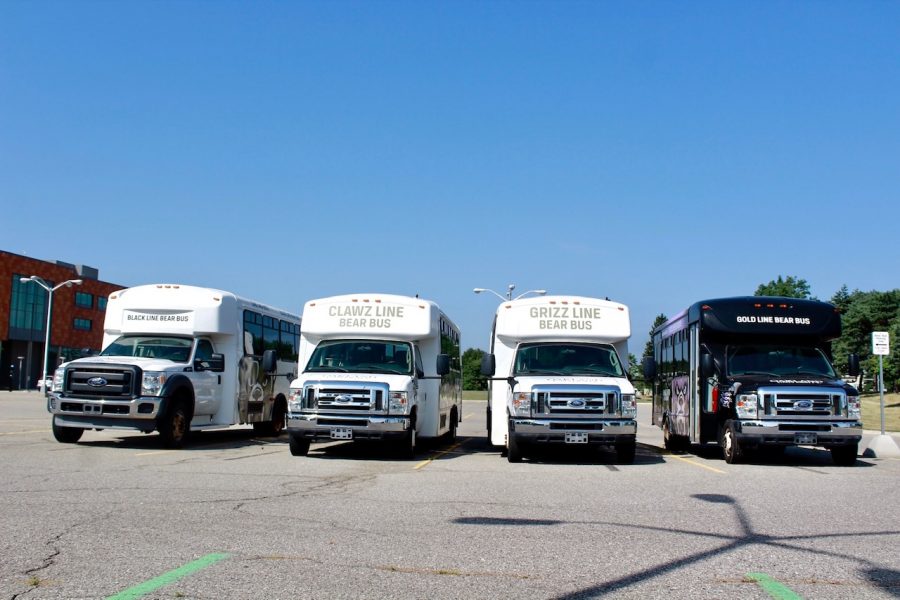Bear Bus shut down after a decade
After ten years of service, the Bear Buses have been shut down. Low ridership was the number one reason indicated by housing and administration.
The Bear Bus shuttle program has been shut down after 10 years of service. Declining ridership, an aging fleet and rising costs to operate the service all lead to administration and University Housing ending the program.
Director of Housing Jim Zentmeyer said that the biggest issue facing the Bear Bus was the decline in ridership. While the service began in 2010, ridership reached its heights in 2012 and 2013.
“That was primarily because [Oakland University] had about seven construction projects going on on campus, some of which were swallowing up the parking areas,” Zentmeyer said.
The loss of parking spaces forced students, faculty and staff to park further away and at remote locations, and the Bear Bus swooped in to ferry students back to class.
“During [2012-2013], we had about 60,000 riders,” Zentmeyer said. “Right now [2019-2020] we are looking at 7,000 to 8,000 riders over the course of the entire year.”
The decline in ridership can seem trivial, if somewhat severe, at first. The Bear Bus was always free to ride, so Housing was not losing out on any fare revenue. But less riders means the cost per rider goes up. While each rider cost Housing around $3 per ride in 2012-2013, each ride cost about $20 in 2019-2020.
The operating costs are compounded when the cost of training and licensing drivers and maintaining the aging fleet of buses are factored in. Drivers are required to have commercial-use licenses and the fleet of shuttles and vans require constant maintenance.
Eventually talks began on phasing out the Bear Bus, and the decision was made by Housing and President Ora Hirsch Pescovitz’s administration to end the program before the Fall 2020 semester. Social media, websites and other online assets for the Bear Bus were taken down around late August.
“Over the years, in spite of the ridership, bus fleet repair issues and program costs, we maintained the program,” Vice President for Student Affairs Glenn McIntosh said via email.
Unlike many changes to life at campus, the COVID-19 outbreak did not play a major role in ending the program.
“We had received word from university leadership that the program would be sunset for the coming year,” Zentmeyer said. “That was about the same time COVID-19 was beginning to gain steam in this country.”
While the Bear Bus program is no longer operating, the infrastructure and shuttles are still at OU. Several shelters have been installed on campus (one is a stop for SMART regional transit buses) and the buses and vans are still operational.
“Extending the entire fleet vehicle life would not be cost-effective,” McIntosh said via email. “We are exploring multiple options including selling or repurposing the vehicles.”
The OU Student Congress (OUSC) has not held any discussion regarding the Bear Bus situation yet, but OUSC President Ethan Bradley has indicated that the congress will meet regarding this issue.
One possible solution Bradley mentioned was shifting control of the Bear Bus to another department.
“It does not make the most sense [to run the Bear Bus] under Housing,” Bradley said. “Housing is more of a business than some of the other sections of the university, so perhaps Student Affairs could take it up if they have the budget for it.”
Students looking to get around on campus can use bicycles or use the Spin scooters, which have been renewed for Fall 2020. Students with disabilities can contact Disability Support Services to explore their transportation options.







Ayomide Abejide • Nov 16, 2020 at 11:31 PM
If this be the case, how will special trips be handled if there is no more Bear Bus?